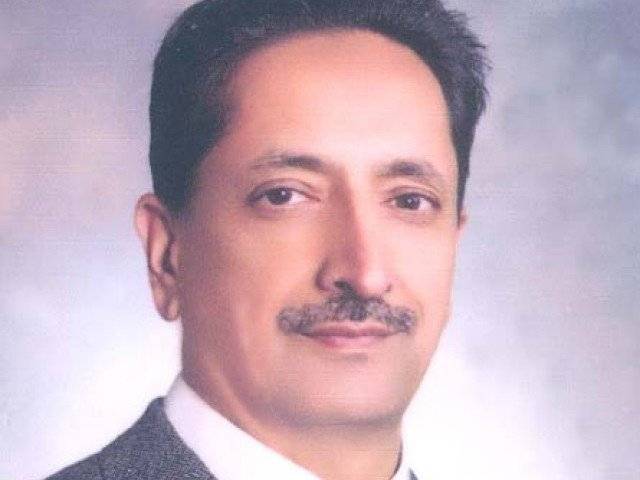ISLAMABAD - Justice Ejaz Afzal of the Supreme Court, who was on the bench that handed down the verdict in the Panama leaks case, has noted in his observations that if investigation agencies show reluctance to lay hands on bigwigs, the apex court should not be assumed to exercise a jurisdiction which is not conferred on it.
“If the NAB and FIA officers had been reluctant to lay hands on elites in view of their appointments, postings and transfer, it does not mean that the apex court should exercise a jurisdiction which is not conferred on it and act in derogation of the constitution provisions and the law regulating trichotomy of power. Any deviation from the recognised course would be a recipe for chaos,” Justice Ejaz Afzal noted in his observations.
Justice Afzal, who was among the three judges who prevailed in the majority judgment in the Panama leaks and issued directives for constitution of a joint investigation team to probe allegations against Prime Minister Nawaz Sharif and his family, observed: “We, for an individual case, would not dispense without due process and thereby undo, obliterate and annihilate our jurisprudence which we built up in centuries in our sweat, toil and blood.”
“We cannot make a hotchpotch of the Constitution and the law by reading sections 9 and 15 of the ordinance in articles 62, 63 and Section 99 of the act and pass a judgment in a proceeding under Article 184(3) which could well be passed by an accountability court after a full-fledged trial,” he said.
Justice Afzal noted: “Let the law, the investigation agencies, the accountability court and other courts take their own course. Let Respondent No 1 (Nawaz Sharif) face all the phases of the investigation, trial and appeal. We would not leap over such phases in gross violation of Article 25 of the Constitution which is the heart and the soul of the rule of law. “We can’t exercise a jurisdiction which has not been conferred on us by any of the acts of the Parliament or even by Article 184(3) of the Constitution,” the judge observed.
Justice Asif Saeed Khan Khosa and Justice Gulzar Ahmed, in their dissenting notes, have observed that under Article 184(3), the apex court has wide and unbridled powers.
Justice Gulzar writes: “This court, under Article 184(3) of the Constitution, has jurisdiction to give any sort of declaration and to pass any consequential order that may be the need of the case.”
“This court is not constrained by any of the technicalities or any of the conditions that may have been imposed on the High Court for exercising jurisdiction under Article 199 of the Constitution, but it has been given free and unbridled powers to make an order of a nature, if it considers the question of public importance with reference to enforcement of any of fundamental rights are involved,” says Justice Gulzar.
Justice Afzal observes courts of law decide the cases on the basis of the facts admitted or established on the record. Surmises and speculations have no place in the administration of justice. “Any departure from such course, however well-intentioned it may be, would be a precursor of doom and disaster for the society. The solution lies not in bypassing but in activating the institutions by having recourse to Article 190 of the Constitution.”
Justice Afzal adds: “Political excitement, political adventure or even popular sentiments, real or contrived, may drive any or many to an aberrant course, but we have to go by the law and the book.”
The judge notes Article 4 of the Constitution says no person shall be compelled to do that which the law does not require him to do. He observes that articles 62 and 63 of the Constitution and Section 99 of the ROPA don’t require any member of the Parliament to account for his assets or those of his dependents even if they are disproportionate to his known means of income.
He said Section 12(2) (f) of the ROPA requires an MNA/MPA to disclose his assets and those of his spouse and dependents and not the means whereby such assets are acquired. “Where none of the provisions of the Constitution or the act dealing with disqualifications requires a member of Parliament to account for his assets and those of his dependents, even if they are disproportionate to his known means of income, how this court could on its own or on a petition of any person under Article 184(3) of the Constitution require him to do that and declare that he is not Sadiq and Ameen, if he does not account for such assets.
Justice Khosa and Justice Gulzar, in their dissenting notes, say the PM should have given the nation the real facts about the purchase of London flats
However, Justice Afzal states that Section 9(a) (v) of the ordinance requires him to account for his assets and those of his dependents and benamidars if they are disproportionate to his known means of income in a trial court or accountability court, but not in a proceeding under Article 184 (3) of the Constitution.
“Failure of the prime minister to do anything which he is not required by law to do would not be of any consequence. It, thus, cannot call for his disqualification at least at this stage,” Justice Afzal says.






